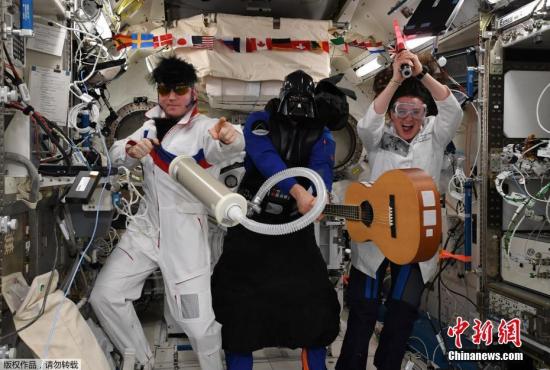China News Service, October 10. According to the Russian Satellite Network, the spokesperson of the Russian Aerospace State Group told the Satellite News Agency that the group had launched two space launches-carrying "Progress MS-16" because of new inspections. The launch of the cargo spacecraft and the "Arctic-M" weather satellite is postponed to next year.
On November 2, 2018, the ESA German astronaut Alexander Gerst of the International Space Station tweeted back to the International Space Station’s Halloween greetings. In the picture, three ISS crew members are dressed as Space Elvis and Darth Vader , Mad Scientist, with the text "Spent a horrifying day in space, the crew of the International Space Station wish you all a Happy Halloween".
The "Progress MS-16" cargo spacecraft contains cargo including New Year gifts for Russian astronauts. Its launch was originally scheduled for December 11.
Now that the launch is postponed, Russian astronauts are not expected to receive their 2021 New Year gifts on time.
The launch of the first "Arctic-M" weather satellite was originally scheduled for December 24.
Both launches were planned from the Baikonur launch site, using the "Soyuz-2" launch vehicle.
A spokesperson for the Russian Aerospace State Group said: "Due to the need for new inspections, it has been decided to postpone the launch of the "Progress MS-16" cargo spacecraft and the "Arctic-M" hydrometeorological satellite scheduled for December 2020 to 2021. "
According to him, "the exact launch date will be announced later."
According to the report, the "Progress" spacecraft is used to transport cargo, fuel, oxygen, air and drinking water to the space station to the crew.
Since 1978, different types of "progress" spacecraft have carried out 167 launches, of which 3 failed to reach the International Space Station due to launch vehicle accidents in 2011, 2015 and 2016.
The "Arctic-M" satellite is used to monitor the climate and environment in the Arctic region.
The second "Arctic-M" launch is scheduled for 2023, and the other three satellites will be launched in 2024-2025.

